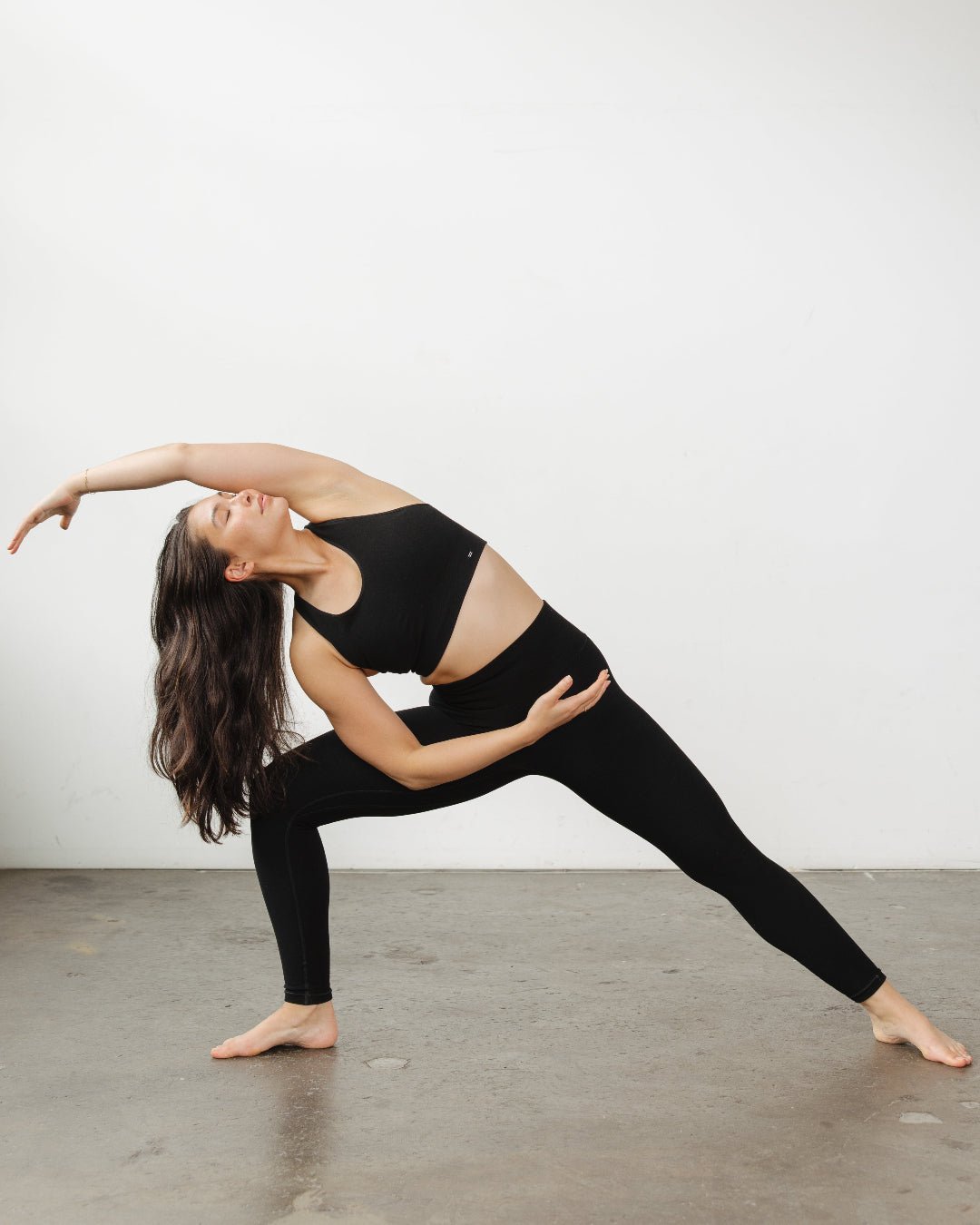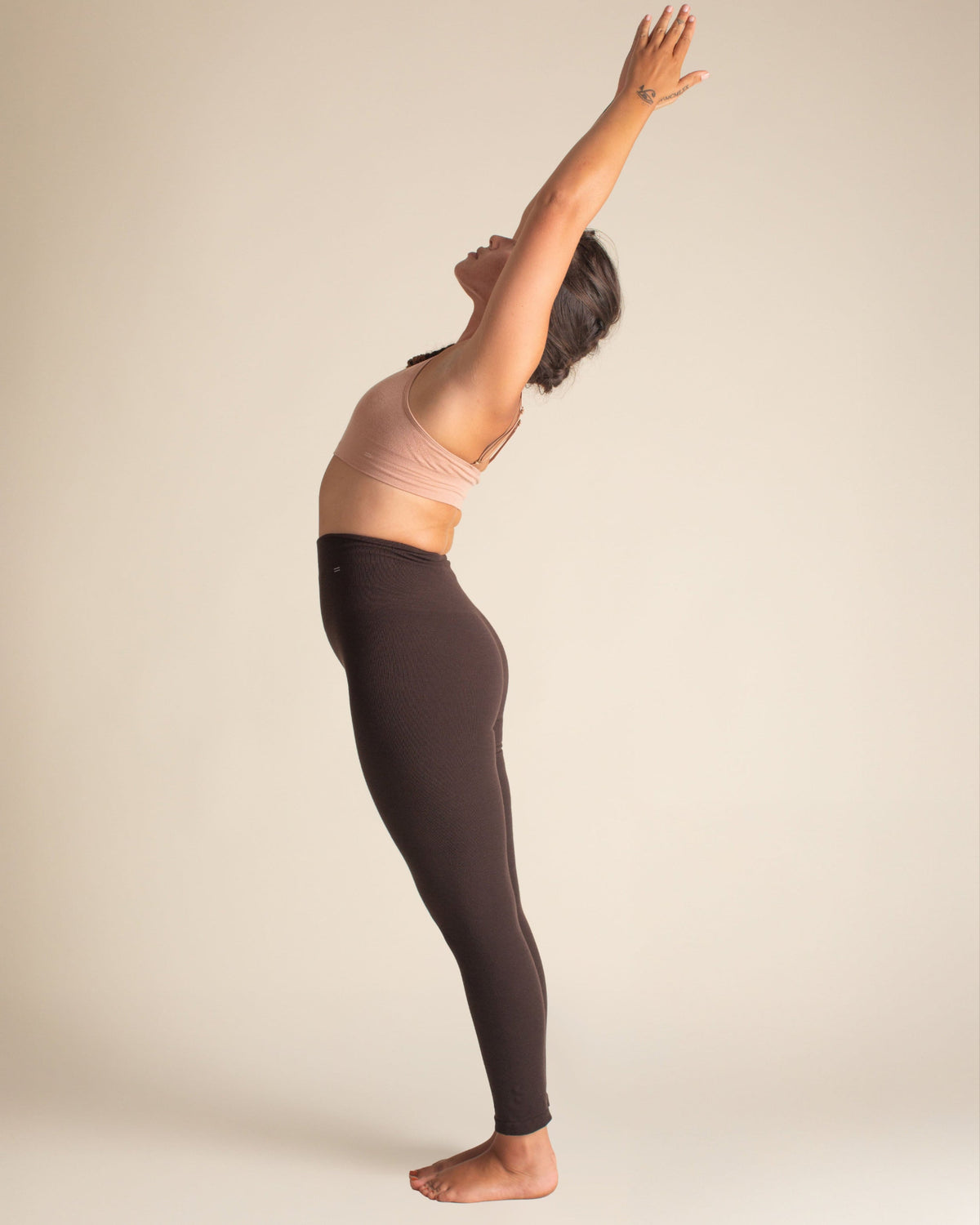The ancient spiritual practice of yoga first originated in India more than 5,000 years ago — and it’s more popular than ever for good reason. While you might think of yoga as a form of exercise or a series of poses, the benefits go far beyond the physical. Research has shown that incorporating yoga into your life can help with everything from improving sleep and reducing stress to boosting your immune system and increasing self-esteem.
Maggie Umberger, a yoga instructor and mindful movement specialist based in Bend, Ore., started practicing yoga in high school through a dance curriculum and was immediately hooked. “I loved that yoga allowed me to connect with myself and not be judged,” she says. “That was the opposite of my world in dance where I was constantly being critiqued on what I looked like and how I moved. The mat became my safe haven.”

Photo credit: Christiana Basso
Umberger (@maggieumberger) believes that yoga is for everyone—and she sees the benefits as boundless both for her and the students she leads. “I would still call myself a student of yoga also. The more you learn, the more you have to learn. I sit in a place of wonder at all there is to learn about our lives when we come to the mat.”
If you need a reason to try yoga for the first time, get back on the mat, or continue your practice, check out a (non-comprehensive!) list of proven benefits yoga can provide. “When it comes to yoga, there are a lot of different options,” says Umberger. If you’re just starting, she recommends trying out a beginner’s class or exploring online options where you can dabble in a variety of styles of yoga for a low cost so which type of practice and teacher you like the most. “There’s no one size fits all.”
1. Reduces stress.
You don’t need to be an expert yogi to reap the benefits of stress reduction. Yoga encourages both mental and physical relaxation. A 2020 study found that just 11 minutes of yoga nidra meditation per day reduced stress levels in participants within 30 days, while another recent study showed a lowering in cortisol levels (the stress hormone).
2. Improves mental health.
“A lot of yoga’s benefits start with understanding how to breathe and that we have a lot of different tools for breath,” says Umberger. Breath work can help not only physically (lowering resting heart rate, for example), but mentally and emotionally, too. One study in the Scandinavian Journal of Work, Environment & Health discovered that after six weeks of yoga, participants' mental health improved in a number of ways with reductions in depression, anxiety, confusion, and fatigue.
3. Helps you get a better night’s sleep.
Considering yoga’s power to improve relaxation and reduce anxiety, it comes as no surprise that the practice can help with sleep as well. Studies show that regular yoga can even help people who suffer from more serious sleeping ailments like restless leg syndrome (RLS) and insomnia get a better night’s sleep.

4. Improves overall strength.
“A huge part of the practice is overall strength,” says Umberger, although she explains the physical benefits may depend on what kind of yoga you choose to do. “Power yoga is a great place to build strength because it’s body weight versus lifting weight, which may be more comfortable.” Hatha yoga has been shown specifically to improve muscular strength, endurance, and flexibility.
5. Boosts immunity.
Can yoga help you fight disease? It’s possible. One recent metastudy indicated that yoga may have beneficial effects on cell-mediated immunity (which helps your body get rid of infected cells) and mucosal immunity (the immune system response in the muscular membrane).
6. Helps provide pain relief.
“Movement is medicine; motion is lotion,” says Umberger. “In general, you can find some relief from aches and pains by breathing, connecting to your core, and a steady movement practice of coming to your mat.” Yoga has been shown to help practitioners sort out all sorts of pain, including arthritis, migraine, low back pain, fibromyalgia, and more. Umberger recommends that if you are experiencing pain it’s best to start with a private lesson to make sure that you’re moving your body in a way that works best for your specific needs.

7. Relieve menopause symptoms.
If you’re experiencing unpleasant side effects of menopause, you might be able to find relief on the mat. A regular yoga practice can help balance fluctuating hormones, reducing hot flashes and night sweats.
8. Tune into your body.
“Yoga definitely taught me to listen to my body,” says Umberger. “Sometimes the things I think will feel good don’t actually feel that good. Then I have to shift and adjust and still love myself through that process.”

9. Build stronger, healthier bones.
Bone health is important throughout our life, but it becomes especially critical as we age. A study in the Topics of Geriatric Rehabilitation found that just 12 minutes of daily yoga helped build mineral density in older adults with osteoporosis. Starting early can help you ward off issues down the line as well!
10. Improve self-esteem.
Research shows a sense of inner power and self-confidence can grow within the first two minutes(!) of completing yoga poses. Umberger says that only compounds over time. “When we commit to something for ourselves (like a yoga practice) we have the opportunity to show ourselves how strong and connected we really are.”













































































